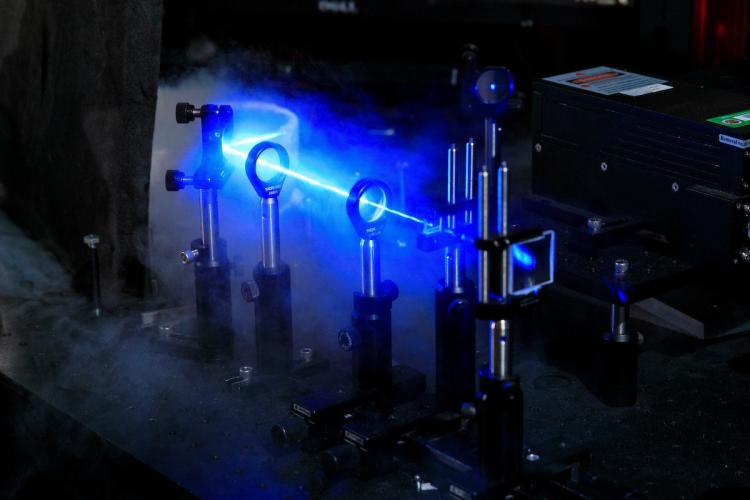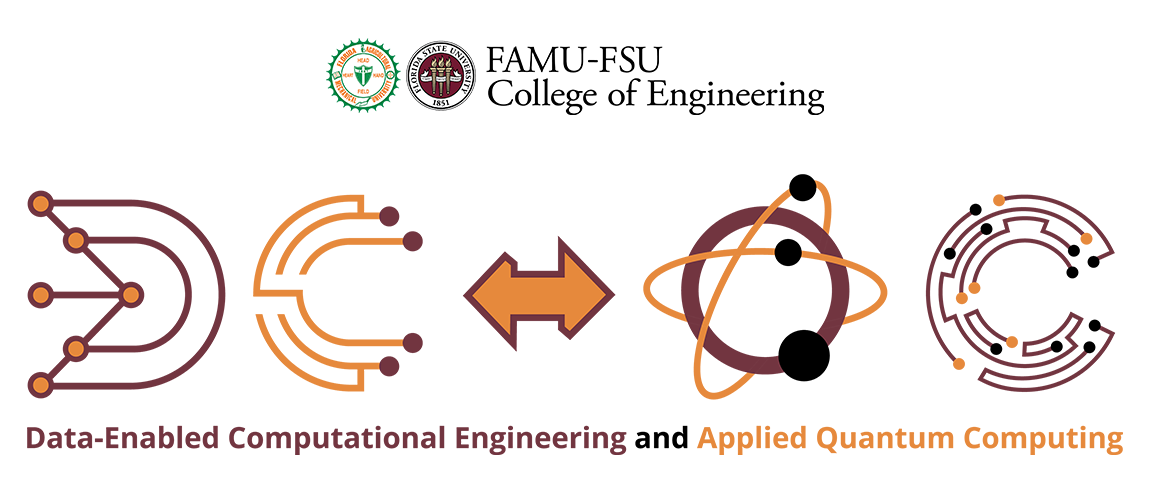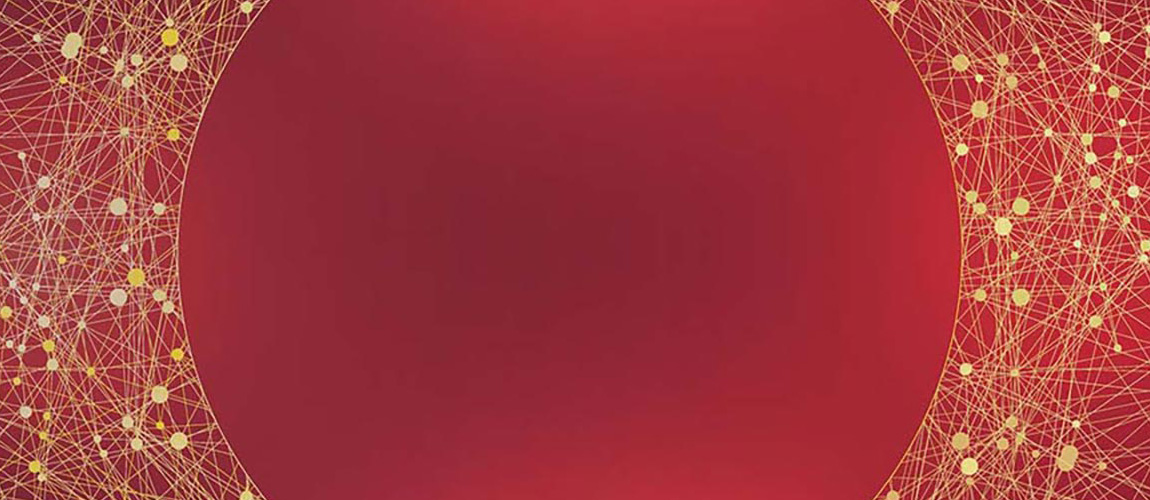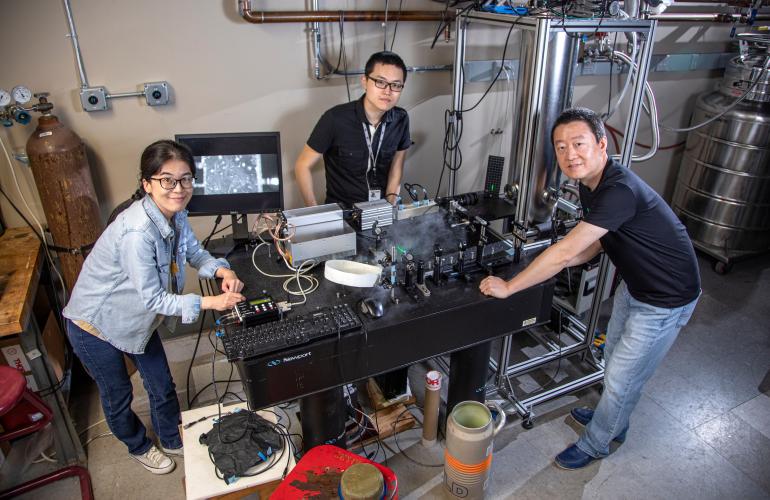
News and Success Stories
- New path to quantum computing: FAMU-FSU College of Engineering research shows promise for trapped electron platforms
- Understanding quantum states: New FAMU-FSU research shows importance of precise topography in solid neon qubits
- Two Researchers Each Awarded $5M National Science Foundation Grant For Quantum Science Research
- FAMU-FSU College of Engineering Emerges as a Quantum Research and Education Hub
- FSU Announces Bold Investments in Quantum Science and Engineering
Research Focus
We address some of the most pressing challenges in Quantum Engineering through a broad set of research programs. These programs combine fundamental science with engineering innovation, leveraging unique strengths at the college and the National MagLab to push the boundaries of quantum technology:
- Quantum fluids and solids as unique platforms for qubits, quantum sensing and precision devices
- Microwave quantum circuits and customized RF/analog front-end systems for scalable quantum information technologies
- Quantum optics and photonic platforms for spin qubits, quantum memories and quantum networks
- Algorithms for computation, optimization and engineering applications on near intermediate scale quantum computers, as well as for hybrid quantum–classical systems
- Quantum communication technologies, including the development of a testbed to evaluate hardware performance in extreme environments
- Quantum materials and thin-film devices to enable novel device architectures and enhance integration
Initiatives, Facilities & Partnerships
The FAMU-FSU College of Engineering is deeply engaged with national laboratories, federal agencies and industry leaders through our funded initiatives and shared facilities. These collaborations ensure that our quantum research directly supports national priorities in secure communication, advanced sensing and computing.
The FAMU Centennial Building QISE Laboratory is a new quantum laboratory established at FAMU in 2024, focused on expanding research capacity and broadening participation in QISE.
Florida Center for Advanced Aero-Propulsion (FCAAP) is a State Center of Excellence involving Florida State University, the University of Florida, the University of Central Florida and Embry-Riddle University. The center's wind tunnel facilities are now being adapted for testing quantum communication hardware under turbulent atmospheric conditions.
The FSU Hydrogen Initiative supports large-scale cryogenics research, including facilities relevant to superfluid helium and cryogenic device development.
The Quantum Initiative at Florida State University aims to further quantum science and engineering (QSE) and to realize its potential for transforming technology and our understanding of how to apply these new technologies to improve our world. In 2023, FSU announced the dedication of $20 million to quantum science and engineering (QSE) within three years to the expansion of QSE research, including hiring postdoctoral fellows and tenure-track faculty and creating the Interdisciplinary Research and Commercialization Building.
Opened in May 2025, the Interdisciplinary Research and Commercialization Building (IRCB) is a hub for researchers from a variety of disciplines and serves as the headquarters for FSU Quantum. With state-of-the-art equipment and remarkable faculty talent, FSU leadership envisions the IRCB as a regional focal point for quantum science and engineering, drawing researchers from around the Southeast who may use the equipment for their own projects.
The FAMU-FSU College of Engineering maintains a strong partnership with the National High Magnetic Field Laboratory (MagLab), located adjacent to the College in Tallahassee’s Innovation Park. This collaboration provides faculty and students direct access to world-class facilities for cryogenics, superconductivity, and quantum materials research, creating a unique environment for advancing quantum engineering education and innovation.
In 2024, two College of Engineering faculty members, Wei Guo and Bayaner Arigong, each secured $5M Track-2 awards. These grants are strengthening infrastructure, developing new courses and creating collaborative research programs in quantum fluids and solids and in microwave quantum circuits/RF systems. A major outcome has been the establishment of a new quantum laboratory at FAMU’s Celensious Building, expanding research capacity and broadening participation in QISE.
Oak Ridge National Laboratory (ORNL) launched the Neutron Nexus pilot program with Florida Agricultural & Mechanical University and Florida State University. The first-of-its-kind program aims to expand outreach with key universities, colleges and other institutions to advance science through neutron scattering research.

Data-Enabled Computational Engineering and Applied Quantum Computing
The DC-QC interdisciplinary graduate program equips students with cutting-edge computational and data-driven skills to solve complex engineering challenges, fostering collaboration and innovation across research fields. Leveraging cutting-edge engineering infrastructure and expertise, we aim to create a dynamic intellectual community that addresses complex engineering challenges on a local, national and global scale.

Florida State University (FSU) Quantum Initiative
FSU Quantum initiative has been established to advance the university’s research and education in the areas of modern quantum science and technologies. Co-directed by Michael Shatruk (FSU Chemistry &Biochemistry) and Wei Guo (FAMU-FSU College of Engineerig), the mission of FSU Quantum is to accelerate the discovery of novel quantum phenomena that can impact the design of engineered systems for quantum information processing, communication, sensing, and algorithms, as well as devices and hardware that rely on quantum protocols.
We invite companies and organizations to further engage with us through:
- Student Development – Partner with us on internships, co-ops, and fellowships, connecting your workforce needs with our pipeline of trained engineers and scientists.
- Collaborative R&D – Leverage our unique facilities and work with our faculty on projects spanning quantum devices, algorithms, and materials.
- Technology Testbeds – Evaluate and co-develop emerging quantum technologies under real-world and extreme operating conditions.
- Workforce Training – Benefit from our NSF ExpandQISE-supported programs and forthcoming Quantum Engineering Certificate, designed to upskill scientists and engineers for the quantum era.

Students at the FAMU-FSU College of Engineering have a wide range of opportunities to participate in quantum research. These opportunities not only give students direct exposure to frontier research but also prepare them with the skills and networks needed to become future leaders in the quantum era.

Academic Departments
The FAMU-FSU College of Engineering fosters interdisciplinary quantum research from the following departments.
Courses and Curriculum
The following new and planned courses give students hands-on experience in quantum technologies. These courses will contribute to a Quantum Engineering Certificate currently in development, designed to prepare students for careers in this emerging field.
- Quantum Devices and Sensing
- Quantum Algorithms and Computation
- Quantum Fluids and Solids
- Quantum Optics and Networks
- Hybrid Quantum Systems
Faculty Research
Quantum research at the FAMU-FSU College of Engineering is a college-wide effort involving faculty from multiple departments. This initiative draws on strengths across engineering disciplines and beyond, with participation from colleagues in the physical sciences and the National High Magnetic Field Laboratory. The following list highlights faculty actively engaged in quantum research (not a complete list).
Quantum Fluids and Solids Based Quantum Devices
- Wei Guo (MAE, MagLab) - quantum fluids and solids, cryogenic platforms, quantum sensing and devices
Quantum Algorithms, Hybrid Systems, and Computation
- William Oates (MAE) - quantum algorithms, uncertainty analysis, and machine learning
- Kourosh Shoele (MAE) - turbulence modeling in quantum and classical systems
- Huixuan Wu (MAE) - hybrid quantum devices and sensing
- Suvranu De (MAE) - quantum scientific computing, quantum linear systems algorithms, quantum finite element solvers
Quantum Optics and Photonic Networks
- Ivan Djordjevic (ECE) - quantum communications, quantum sensing, quantum networks and quantum optics
- Lukasz Dusanowski (ECE) - quantum optics, optically active spin qubits, quantum memories, and photonic networks
Microwave Circuits, RF Systems, and Devices
- Bayaner Arigong (ECE) - microwave quantum integrated circuits, customized RF front-end, and analog processing for scalable quantum technologies
Quantum Materials and Device Fabrication
- Zhibin Yu (IME) - quantum materials, thin-film manufacturing, and device integration
Quantum Education, AI, and Systems Integration
- Lichun Li (IME) - AI for engineering, quantum education programs, and integration of quantum systems into broader applications
Quantum Computing in Transportation Systems
- Qianwen (Vivian) Guo (CEE) - applying quantum computing to intelligent transportation systems and disaster-resilient network recovery

Join us each month for Quantum Bites, a brown bag seminar series to spark connections, share exciting breakthroughs and grow a vibrant community in quantum engineering. This is more than a seminar series; it’s a space to exchange ideas, explore cutting-edge research and inspire collaborations across disciplines. Whether deep into quantum research or just curious, you’ll leave each session with fresh perspectives and new connections.
